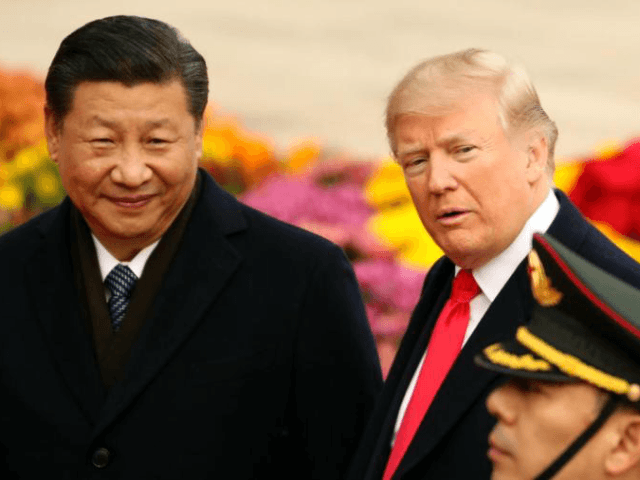WASHINGTON, DC – A bicameral group of lawmakers has joined efforts to combat what it describes as the threat to U.S. national security posed by the increasing scope of Chinese government investment in the United States.
The members of Congress fear that Bejing’s direct investments in the United States may ultimately place America at a disadvantage over its military and economic rival China.
“China is buying American companies at a breathtaking pace. While some are legitimate business investments, many others are part of a backdoor effort to compromise U.S. national security,” declared Rep. Robert Pittenger (R-NC). He added:
For example, China recently attempted to purchase a U.S. missile defense supplier using a shell company to evade detection. The global economy presents new security risks, and so our bipartisan legislation provides Washington the necessary tools to better track and evaluate Chinese investment.
The proposal comes as the White House announced it had negotiated $250 billion in business deals on energy, transportation, technology, and agricultural sectors with various Chinese companies, including some state-owned ventures.
Joined by more than 20 other co-sponsors from both chambers, Pittenger and Senate Majority Whip John Cornyn (R-TX) introduced the bipartisan legislation Wednesday to strengthen the U.S. government’s national security review process of potential foreign investments, particularly those that may compromise the safety of Americans.
“Chinese investment in the United States increased more than 900 percent between 2010 and 2016,” noted the lawmakers in a press release announcing the proposal. “Much of this investment was part of a strategic, coordinated, Chinese government effort to target critical American infrastructure.”
The Rhodium Group, a U.S. consulting firm, estimates that Chinese government investment in the United States has reached nearly $33 billion, while private investment stands at about $104 billion.
The Chinese government’s investments are growing at a time when the U.S. Strategic Command (STRATCOM) believes America is facing “significant challenges” sustaining its defense capabilities, both in the nuclear and conventional realm, and is at risk of no longer holding a military advantage over rivals like China.
Under the proposed legislation, the significantly outdated Committee on Foreign Investment in the United States (CFIUS) — the only government entity charged with ensuring potential foreign investments do not harm U.S. national security — would be subject to a substantial overhaul.
“This bill focuses on providing CFIUS with updated tools to address present and future security needs,” notes Dianne Feinstein (D-CA), one of the legislation’s sponsors.
“By exploiting gaps in the existing CFIUS review process, potential adversaries, such as China, have been effectively degrading our country’s military technological edge by acquiring, and otherwise investing in, U.S. companies,” adds Sen. Cornyn. “This undermines our national security and highlights the imperative of modernizing.”
According to Rep. Pittenger’s office, the Foreign Investment Risk Review Modernization Act:
Expands CFIUS jurisdiction to include joint ventures, minority position investments, and real estate transactions near military bases and other sensitive national security facilities.
Updates CFIUS definition of “critical technologies” to include emerging technologies that could be essential for maintaining the U.S. technological advantage over countries that pose threats.
Adds new national security factors to the review process.
Strengthens the government’s ability to protect American “critical infrastructure” from foreign government disruption.
Citing the Rhodium Group, China Daily reports that China’s overall direct investment in the United States is expected “to grow fast in 2017.”
However, the assessment reportedly cautioned that the Trump administration’s “confrontational approach to trade and investment policy toward China” poses a significant downside risk to Chinese investment.
Nevertheless, President Trump praised Chinese business leaders during his state visit to Beijing.

COMMENTS
Please let us know if you're having issues with commenting.